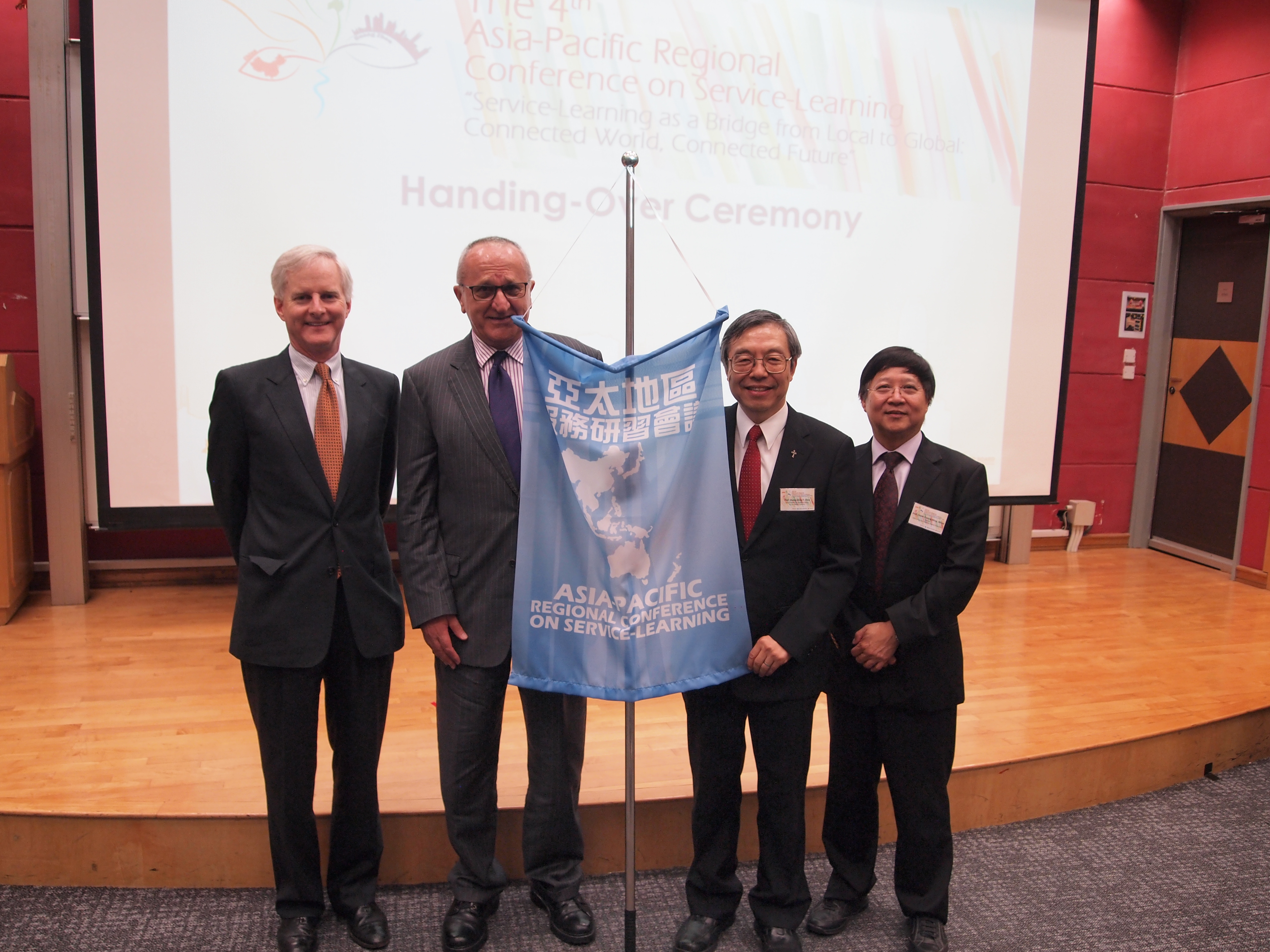Location
MD202, Paul Cardinal Shen Medical Building, Fu Jen University
Start Date
28-5-2015 4:30 PM
End Date
28-5-2015 5:40 PM
Description
The purpose of this study is to develop and to examine the construct validity of the "service-learning reflection scale" for undergraduates based on Kolb's learning theory. The research aims to: (1) recognize undergraduates' levels of reflection for service-learning; (2) let undergraduates understand their learning styles; (3) evaluate the effect of service-learning for the instructors. We used the Likert's style to make the scales. There are 33 items in the initial scale divided into four subscales inclusive of the concrete experience (CE), the reflection observation (RO), the abstract conceptualization (AC), and the active experience (AE). For the very first time, we invite four experts to evaluate all the items to proceed three times Delphi technique process. We adopt the item analysis, exploratory factor analysis and reliability analysis via 326 participants in the pretest. Cronbach's alpha reliability coefficients of the four subscales are from .80 to .87, and that of the total scale was .95. The whole explained variance was 60.16%.
In this study, we make use of the stratified sampling, 1,251 undergraduates, to analyze the construct validity by the confirmatory factor analysis. The model index such as GFI, AGFI, NFI, RFI, IFI and CFI are above .90, RMSEA and RMR are below .05, as well as PGFI and PNFI are above .50. In addition, the structural equation modeling analysis indicates measurement weights, measurement intercepts, structural covariance matrixes and measurement residuals of male/female and general/technical undergraduates groups are no significant differences. Moreover, the Cronbach's alpha values of the four subscales are from .85 to .86, and that of the total scale is .95. The results show that the CFA and reliability analysis confirm the theoretical structure as well.
Recommended Citation
Lin, M.-J., Tung, Y.-Y., & Chang, T.-M. (2015, May). The development and confirmatory factor analysis of the "Service-Learning Reflection Scale" for undergraduates. Paper presented at the 5th Asia-Pacific Regional Conference on Service-Learning: Love Journey: Community Engagement through Service-Learning, Fu Jen Catholic University, Taiwan.
Included in
The development and confirmatory factor analysis of the "Service-Learning Reflection Scale" for undergraduates
MD202, Paul Cardinal Shen Medical Building, Fu Jen University
The purpose of this study is to develop and to examine the construct validity of the "service-learning reflection scale" for undergraduates based on Kolb's learning theory. The research aims to: (1) recognize undergraduates' levels of reflection for service-learning; (2) let undergraduates understand their learning styles; (3) evaluate the effect of service-learning for the instructors. We used the Likert's style to make the scales. There are 33 items in the initial scale divided into four subscales inclusive of the concrete experience (CE), the reflection observation (RO), the abstract conceptualization (AC), and the active experience (AE). For the very first time, we invite four experts to evaluate all the items to proceed three times Delphi technique process. We adopt the item analysis, exploratory factor analysis and reliability analysis via 326 participants in the pretest. Cronbach's alpha reliability coefficients of the four subscales are from .80 to .87, and that of the total scale was .95. The whole explained variance was 60.16%.
In this study, we make use of the stratified sampling, 1,251 undergraduates, to analyze the construct validity by the confirmatory factor analysis. The model index such as GFI, AGFI, NFI, RFI, IFI and CFI are above .90, RMSEA and RMR are below .05, as well as PGFI and PNFI are above .50. In addition, the structural equation modeling analysis indicates measurement weights, measurement intercepts, structural covariance matrixes and measurement residuals of male/female and general/technical undergraduates groups are no significant differences. Moreover, the Cronbach's alpha values of the four subscales are from .85 to .86, and that of the total scale is .95. The results show that the CFA and reliability analysis confirm the theoretical structure as well.
